lewism
Northern Lights by Philip Pullman 📚
A great adventure romp which immediately made we wonder why I haven’t read this before. I imagined a sort of steam punk alternative reality with a little magic sprinkled in. Everybody in this world has their own daemon an idea which Pullman explores really nicely, and overall the plot is a little sharper and more relevant than most in this category while really brings alive an alternative world. The ending felt really like it just pushed me towards immediately starting the next one in the series. A fun and recommended read. 📚 ★★★★
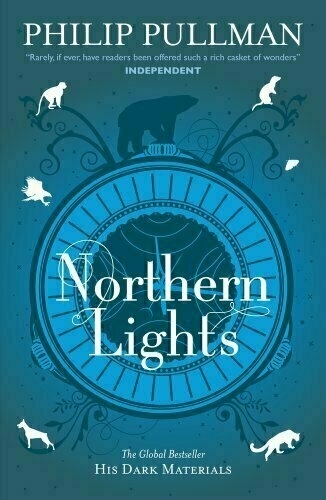
Toward Eternity by Anton Hur 📚
In Toward Eternity Hur takes us on a journey where AI and nanobots take humanity through the next stage of evolution it’s at once personal and eon spanning. A philosophical and poetic look at the next phase of human evolution.
A world where reality exists balanced between instantiation and rapture, a passage travelled between the experience of existance an the act of recognition of it and of the difference between the act of creation and that of interpretation.
There is something of the Ship of Theseus paradox and something of the first words of the bible in the beginning was the word. But there is something beyond words, the taste of the ideas swirling around that this book left me with.
As one of the characters tells us about his favourite poem Rosetti’s Winter:My Secret. The secret is the thing preceeding the poem, it’s anticipation, the performance of the poem as part of the secret the part that brings it to life. ★★★★★ 📚
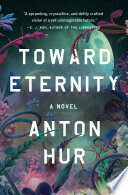
You Are Here By David Nicholls 📚
A gentle romance about two middle aged people who have had broken love lives coming together over a walk across the UK. The characters are believable, smart and a little guarded and bruised, they are well drawn by Nicholls and I liked them straight away.
The walking trip frames each day a set of chapters and gives the book structure and also provides a great way for two strangers to get to know each other better. From the writer of One Day it’s an engaging book that offers something a little different and dare I say better than the average romantic novel. ★★★★ 📚
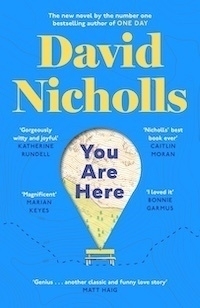
The Father (2020) 🎥
The Father (2020) directed and co-written by Florian Zeller sees Anthony Hopkins and Olivia Coleman both give outstanding performances in a film about a pensioner who has dementia.
With the way the film is cut looping time and disorientating us as much as the protagonist, the use of the same actors to portray different people and the tricks of the apartment set, it’s just a tour de force of storytelling.
Not a feelgood movie but instead a poignant, beautiful sometime frightening and sad journey. It may provoke some wet eyes and a little soulsearching. 🎥★★★★★
Twilight of Democracy by Anne Applebaum 📚
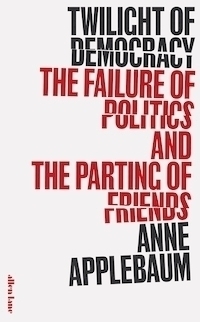
Twilight of Democracy: The Seductive Lure of Authoritarianism is a 2020 book by Anne Applebaum.
Anne Applebaum is an American journalist who lives in Poland and is married to Radisłow Sikorski (in 2024 the Polish Foreign Minister). She started off writing in the UK for The Economist and for The Spectator.
She is from the centre-right with the emphasis on right but a liberal and believer in democracy and the rule of law. In the book she sketches out the outlines of a rift in politics not between left and right but between pro and anti-democratic political forces.
This book charts the rise of populism perhaps better described as authoritarianism in Europe and the USA. She is the perfect person for this role as she was there so to speak. With her journalistic connections and later with her husbands too she was often a witness to the events first hand, a confidant of someone who took part in it, or there in the room.
Indeed this point is beautifully put over at the beginning of the book where she tells about a new years party she put on celebrating the dawn of the millennium with the elite of the Polish right at the time.
At that moment, when Poland was on the cusp of joining the west, it felt as if we were all on the same team. We agreed about democracy, about the road to prosperity, about the way things were going.
Now some of them would cross the street to avoid each other. Friends have become enemies and people who previously espoused democratic values have in practise reneged on them when their own careers could be furthered or their beliefs challenged or when the meritocracy worked against them.
Applebaum knows the players well and quickly and succinctly summarises the tragectory of Poland under the Party Law & Justice (Pis).
She then turns over a nest of bugs in Hungary, UK and Spain before turning to the USA.
She identifies key people or clercs who have betrayed the task of journalists or politicicans - to portray the truth - for their own ends.
Some key clercs profiled in the book are Rafael Bardají (Spain), Ania Bielecka(Poland), Simon Heffer (United Kingdom), Laura Ingraham(United States), and Mária Schmidt (Hungary).
AA also looks at why people might support authoritarianism and introduces (to me anyway) the idea of soft dictatorship and of the medium-sized lie.
The case of Dreyfus in 19thC France is also brought up as a kind of mirror of the political rift today, and indeed it seems to contain many of the same axels, anti-semitism & nationalism being just a couple of them.
I have read some reviews of the book that notes Annes friendship with many of these people and perhaps imply her at least partial guilt in not calling out these people earlier. Of this I couldn’t say but at least she is vocal and specific now.
The book is fairly short and succinct and a great starting point for anyone wishing for an overview of the first 20 years of Western political health from someone who was there. She gives good insight into these events up to 2020 when the book was published. ★★★★📚
The Gift of Confidence
In a short but lovely interview with the Author David Nicholls (of One Day fame) he said something that struck me.
“There’s a line in One Day where Dexter says that he wishes he could give Em the gift of confidence, which is something a friend of mine said to me then.” via
I wish I had that gift, I often see that you either have it or not.
I think my kids are a little better than me, but if this would be a gift I could give them then I would.
A Place To Read by Michael Cohen 📚
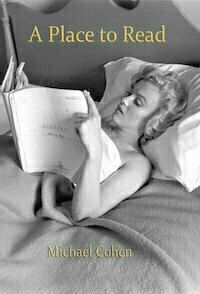
Michael Cohen has collected a book of his essays together which are about reading and a life taken up by reading.
Among the things he covers, places and their links to time, the home, places to read, names, clothing, travelling, playing golf, notebooks and journalling. Every one of these topics is tied to Cohens own life expanded upon and brought to life while also peppered with small insights that add up as you keep reading.
Sometimes the clarity and beauty of the connections he makes just stopped me in my tracks. It was a book I would pause with just to take in the last thought I’d read and which often sparked my own connections.
The books range is also appealing somehow far reaching but always circling back to something close and personal yet which many of us share.
The essays themselves are beautifully crafted often coming back to their beginnings closing their own opening in some beautiful way or linking somehow with another essay in the book. So to paraphrase something within its own pages it’s a book I will love forever. ★★★★★📚
Empire of Silence by Christopher Ruocchio 📚
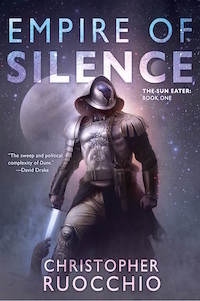
I was excited to start this series having heard good things about it. Characterisation and dialogue are strong although sometimes too pondering. World-building uses a medieval framework on top of a star wars type science-fiction future where earth has been lost and it’s worship turned into the state religion, so far so good.
I found the descriptions and dialogue long winded and pondering. What starts out as involving detail soon became an added weight to the act of reading. The plot slows down here and the impression towards the end of the book was of a few tropes tied together by badly paced writing balanced by an involved and engaging world and plot. This means I can’t fully recommend I think some will love this and some will tire of it.
I am currently reading book 2 Howling Dark as my patience has not yet run out. ★★★ 📚
Obsidian But For Images
I have been looking for an app that is a kind of obsidian for images. Something that I can browse and organise photos with and where tags and comments are written to the file so that if and when the software is no longer supported the files are there with my information carried along. Files over apps just like in Obsidian.
I have been checking out OneFolder but it has not been fully plain sailing. I would love something a little closer to eagle but that encases all your files in a database. I don’t really want to go to adobe bridge with its adobe account cruft. 💻
This Is How You Lose the Time War -by Amal El-Mohtar & Max Gladstone 📚
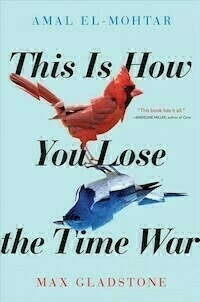
A beautifully written book which starts off slowly if captivatingly but I found myself getting more and more immered in it as it went along. A book with two authors writing the letters of each protagonist back and forth. Surprisingly poetic, philosophical, the prose has a shimmering beauty that will stay with me long after the plot fades.
The idea of dna running through the book matches with the time travel theme as do the double female characters' love story which pushes the book past a exclusively genre centric reading. A modern classic. ★★★★★ 📚.
Babel-17 by Samuel R. Delany📚
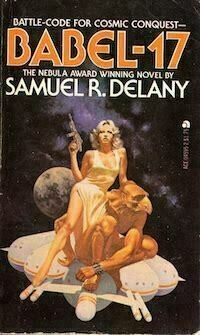
A philospohical sci-fi book which in some ways is genre bending. How is reality and the language related, how do different languages effect how we see reality or how it can be manipulated even?
Babel-17 is a deep dive into these ideas. The complexity or ambition of writing style sometimes clashes, with the need to get over fascinating ideas clearly. The world building also sometime feels incongruous when taken as a whole but it makes you think, even dream about bounds of our experiences.
This is every bit a different type of sci-fi compared to something by Martha Wells for example. It requires attention and thought, but it has a strong driving narrative arc as well it’s a great read, and the fruits are worth the exertion. ★★★★ 📚.
System Collapse by Martha Wells 📚
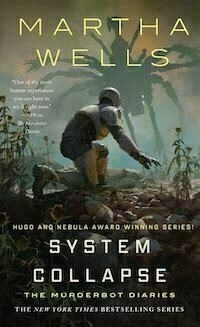
This is the seventh installment of the murderbot series by Martha Wells and a follow up to Network Effect. At this point I am fully signed up to read any and every murderbot book immediately. This one was good but felt a little like an extended epilogue to Network Effect. So here I am greedily waiting for a new adventure and the next installment Grrrr! ★★★ 📚.
The Alienist by Caleb Carr 📚
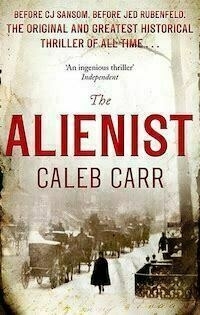
Set in 19th Century New York. A Gothic whodunnit, and a kind of tribute to ripper and Sherlock Holmes mysteries. Maybe the characters are a little derivative and the plot is a little clunky in the final chapters, but New York of the 19th Century is brought alive brightly and beautifully in all it’s glory. The recreation of New York fully absorbed me and was the reads real highlight. A lovely book to get lost in. ★★★★ 📚
First Encounters and Thoughts on AI
So I have been seeing the deluge of all things A.I. in the news and on my feeds etc for a little over a year. This week I was confronted with two AI examples in my own life for the first time.
In text someone whose second language is not even English and had used chatGPT to write a job application letter. He wanted me to look at it and make suggestions and only admitted to me after I had altered it that it was made with AI.
So firstly the english was impeccable, maybe only a few too many commas. But as a letter it was terrible and was so generic as to be immediately ignorable by any employer. I can however imagine with better prompts that a good letter could have been formed.
The second was in an architecture competition which I am doing with a friend. He put some prompts through midjourney concerning some basic ideas we had about the building.
The images were immediately amazing to me on first look. But on deeper inspection they fell apart and were not convincing, strange glitches and impossible artefacts in the building being only the most obvious failures.
I can see these as becoming tools and perhaps shockingly meaning some jobs in which expert knowledge is required will be quite quickly supplanted by AI.
It’s also quite clear from the results that AI doesn’t know what it’s doing (not true AI) but that AI makes accessible brute force knowledge like language knowledge and photorealistic imagery that otherwise for individuals requires thousands of hours to build up their abilities in.
Should I be afraid or reassured? The tools are exciting and potentially for all of us liberating but as usual I never stop being surprised by the depth to which humans can f–k it up. 📝
Going Green
Last Summer we put some solar panels on our roof (4.1KW). The aim was to be able to go 5 months of the year without electricity or heating bills which we achieved. Happy to say we were part of a successful rollout of solar in Europe last year. If anyone is toying with the idea of putting some solar panels on their roof I can wholeheartedly recommend it. ♻️
The Dark Forest by Cixin Liu 📚
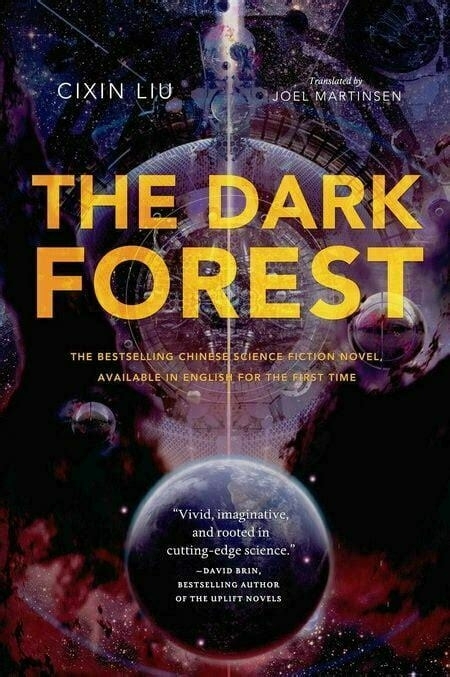
The second book in Earth’s Past Trilogy by Cixin Liu. The Dark Forest takes up the story where The Three Body Problem left off but aside from the world weary cop Shi Qiang with different main characters.
By now it’s clear that this trilogy deals with overriding ideas and concepts rather than characters and that is ok with me. The book is a little two speed, the first part of the book is a little slow and only gets going later. The overall concept at the heart of the book The Dark Forest truly is dark, but somehow Cixin after setting up this terrible possibility finds a silver lining. Chilling, beautiful and touching if you can make it through to the end. 📚★★★★
The Three Body Problem by Cixin Liu 📚
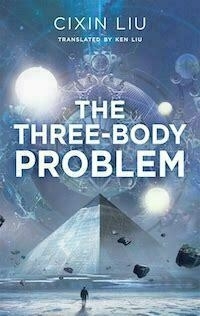
The Three Body Problem is an unsloved physics problem and the key metaphor through which Cixin Liu’s The Three Body Problem is written.
Liu has written hard-fi and historical fiction, real science recast to tell the stories of two civilisations with immense imaginative leaps.
Dealing in high concepts, zooming between small and large scales and explains well it’s ideas although it helps to have some knowledge of these already. It really is imaginatively one of the most impressive books I have read for a long time. The narrative gathers pace as the book progresses and as beautifully terrifying ideas come to life. Highly recommended. 📚★★★★
Killers of the Flower Moon by David Grann 📚
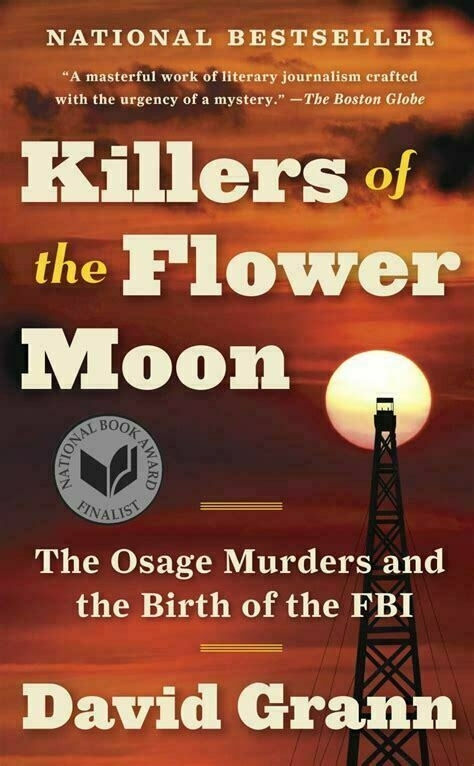
The Non-fiction book Killers of the Flower Moon by David Grann starts with the story of Mollie Burkhart and the brutal murders of her family. Mollie was an Osage Indian and in a weird twist of fate the Osage who were removed from their land and placed on a reservation struck lucky when oil was found there. Luckily the Osage Indians with head rights to the oil suddenly became unbelievably wealthy, or maybe it wasn’t so lucky after all. In the mid 1920’s they were being murdered, shot, poisoned, blown up. Perhaps the richest group of people on the planet were also the most hunted. Mollies two sisters and her mother were murdered. A real life murder mystery and thriller rolled into one. What was going on and how was it nobody had been caught?
The story moves on to J.Edgar Hoover and the formation of the FBI. Hoover sent in a former Texas Ranger Tom White to lead an investigation into the murders. They found their man and the brief fame of the case contributed to the founding of the FBI. The case stands at the crossroads between the american frontier and modern america in many ways. After the case faded from the public imagination and because of the dwindling oil reserves this episode in history was largely forgotten.
The third part of the book is maybe the most hard hitting. From the wiki article I found this quote which sums it up nicely
There is a kick-in-the guts half-twist at the end of the book that gives the work its moral heft and reminds the American people of the great cost of their nationhood. It’s a twist that owes everything to Grann’s diligence and intelligence as a journalist. It could not have been discovered without what he calls his “research odyssey”. - David Aaronovich
Grann talks to the relatives in the case and assembles his evidence. The terrible facts of the murder case have perhaps obscured a deeper and uglier truth, that of the murder and subjugation of the whole Osage nation. Perhaps hundreds of other murders were never solved, or even investigated. Grann shines a light on the venal greed of the so called civilised, leaving a deep impression. A must read. 📚★★★★★
Also I know a Scorsese film is coming this year based on the book. I am greatly looking forward to it. In the mean time you can watch this interview of the author.
The Lost City of Z by David Grann 📚
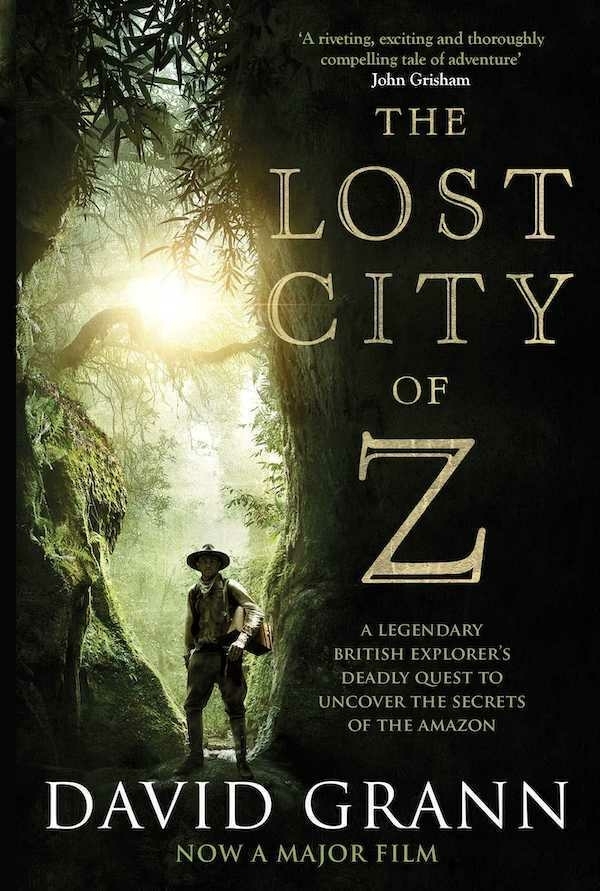
A lovely book, at once a biography, a detective story, a piece of travel writing, and maybe also an insight into how we search both for meaning and for things.
Percy Fawcet was an explorer, a real life Indiana Jones at beginning of the 20th Century as Britain’s empire was waning and the area of the world still unexplored was shrinking quickly. Fawcett went search of the last of the unknowns on the map in the Amazon.
In his last adventure he went back into the Amazon to find the Lost city of Z a place he was sure existed against the run of mainstream thought. He was never seen again. The book is a story of what happened before, during and after the expedition and contains a beautiful modern insight from current Archaeologists in the region. A gripping and highly recommended read. 📚★★★★
Yearly Theme 2023 - Push
Push is my yearly theme for 2023. Push out a little past my comfort zone I have built up. Maybe expand out my horizons as from last year. But the main thing I want to do is work hard on improving my Finnish language. I want to be in a position by the end of the year to take my YKI intermediate language test. Lets see how I get on….🇫🇮 📝
2022 Yearly Theme Review
OK so I posted My Yearly Theme for 2022 and thought I would briefly reflect on how it’s going! The theme I chose was Consolidate and it broke down into a few key areas of my life;
-
more reading, writing and journaling
-
more quality time with my family
-
learn to type faster
-
work on my Finnish language 🇫🇮
-
less subscriptions
-
simplify & improve my workflows
-
keep saving (yes)
I will quickly look over how these subcategories are going one by one.
More Reading, Writing and Journaling
Broadly the reading part of this has been going really well. I have added an audible subscription this year so for the first time have been listening to books also. From the writing side of things I have been writing and thinking in Obsidian and following the Obsidian book club. Not much output which I would like to improve. The journalling has been going less well. A little reflection at the end of the day often escapes me but I have been writing about most of the key events which is good enough!
More Quality Time With Family
Broadly speaking also has been good. Holidays and weekends doing some nice things at home. A long summer holiday during which we spent some great time all together.
Learn to Type Faster
I have not really done anything with this. Now and again I do some practice typing but I not managed to make this a habit yet. It is better maybe thats enough for now.
Work on My Finnish Language
I started the year badly in this but took a new course with a new attitude in the Autumn. This is the biggest bugbear I have and its going to be the focus to a greater extent during the rest of the year. Jatka taistelua!
Less Subscriptions & Simplify and Improve Workflow
This is mixed. I have going from wordpress to micro.blog and blot and I am happy. I have saved some money in hosting and have greatly simplified my writing workflow. I have removed a few subscriptions but also added some so I can’t say overall that has gone well. Overall I have not sved money but I have simplified my online life.
Keep Saving
This has gone pretty OK, but this is always provisional.
Overall
The Theme Consolidate implies a simplification and a strengthening of the core I think and so if I look at the key theme holistically I am fairly happy with that. I have made some progress and simplified some things allowing me a bit more clarity in my writing and reading goals. These can now continue leaving me to concentrate on a few personal goals in need some attention. 📝
My Microblogvember
Thinking about how hard it might be to get a random word and make something of it I wanted a way to be able to constrain myself and also that would help inspire and challenge me. @challenges
So I chose the subject of Finland, where I live but am not a native. It really helped and hopefully made the sum of the words I posted about add up to something a little more than they would have been individually. So here they all are;
figure feast license admiration exempt echo insight consensus certain minister display suspicion adjust leave aluminium franchise barrel tire novel repeat ice grazed update retain ritual commitment motivation trend fish safety
Fingers Crossed a Review 📚
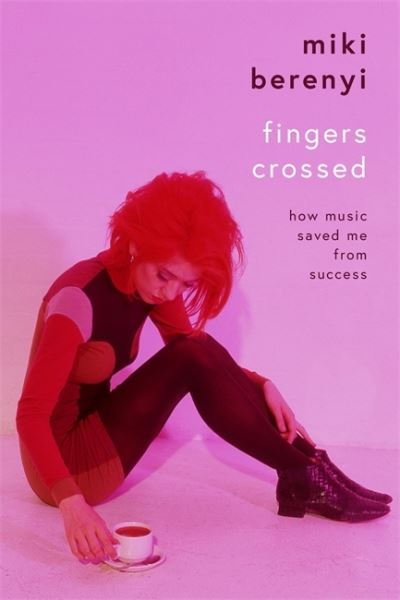
Madchester, Shoegaze and Grunge were a few of the scenes that I was introduced to in my first couple of years at college when I first left home at the beginning of the nineties. Bands like Ride, Happy Mondays, Cocteau Twins, The Fall, Pavement, Nirvana and of course Lush. At that time of life it’s often through music that you identify yourself and so those bands will always have a special feeling for me, everyone has their own band hiastory maybe.
Now some thirty years later Miki Berenyi the lead singer from Lush has an autobiography out Fingers Crossed: How Music Saved Me from Success, and it really is an involving, agoninzing and engaging read.
The book is split into two parts, Miki’s childhood growing up in London and then her time wtih the band Lush. Certainly there is a hell of a story to tell. Her upbringing is really unusual and at many points quite harrowing. This is all told delicately and with great skill, the worst of it is not really highlighted but it’s all there, involving but not showy, better and more involving writing than most biographies.
The second part of the book covering the band years is also fascinating and a knowledge of the bands is not necessary, Miki’s story is enough. The bad behaviour, sexism and hedonism is a timeless trope but it’s written about calmy and Miki doesn’t spare herself.
For my part I think Lush were underrated at the time and their melodies and lyrics are better and more intereting than most of their contemporaries. After reading the book forinsance I went back to their back catalogue. The lyrics from Light From a Dead Star especially hit hard…. It was all there in the lyrics for anyone to see all this time.
Overall it is a fantastic book that I loved and that I would recommend to anyone regardless of their own band history! 📚★★★★★
Lyrics from Light From A Dead Star
He lives his life in a world
Full of women and he takes
What he wants from their love
And he throws the rest away
I cling to him and pray
But still, he slips away
And now it’s just too late
To wish him back again
She won’t put up with this life
So she leaves him and she finds
Someone else, falls in love
And she travels far away
I say that it’s okay
And swallow all my pain
And now it’s just too late
To wish her back again
They left me here on my own
In a nightmare and I just
Can’t forgive any more
So I smile and I turn away
Don’t listen when they say
They wish that I could stay
And now it’s just too late
To wish me back again -Miki Berenyi
My Summer 2022 Reading List 📚
For the first time ever I made a summer reading list for myself in order to try and find some good books and read them in a slightly more methodical way than the almost random method I usually choose my next book from.
First I listed out all the books I had already but haven’t read adding a couple from there. Long ago I reconciled myself to the fact this list will probably only get longer over time.
Then for the first time I really tried to use goodreads and together with that go through my old lists. What books might make good listens, which I should actually read on kindle or in the flesh even. I added in a few books from booktube recommendations , and tried to mix it up with book genres I normally don’t read (see the romances bellow). I really enjoyed my reads overall and the act of making the list and thinking what to add to it was fun in itself. I think it also helped to make the reading journey a little more satisfying, It at least felt more deliberate.
Two particular favourites that made my summer were The Left Hand of Darkness and A Place to Read which was recommended by Jamie Todd Rubin so a big thanks to him for putting up a review of it.
I will be making an Autumn reading list, I think it could become a seasonal thing. A way of making selections of the books I read more thoughtful and more rewarding.
Over the three months of summer these are what I finished:
- The Library of the Dead by T L Huchu
- Our Lady of Mysterious Ailments by T L Huchu
- Four Walls and a Roof by Reinier de Graaf
- Where The Crowdads Sing by Delia Owens
- A Place to Read by Michael Cohen
- Beach Read by Emily Henry
- The Night Charter by Sam Hawken
- A Brief History of Equality by Thomas Picketty
- The Left Hand of Darkness by Ursula K. Le Guin
- Depth Charge by Jason Heaton
A Brief History of Equality - a Short Review 📚
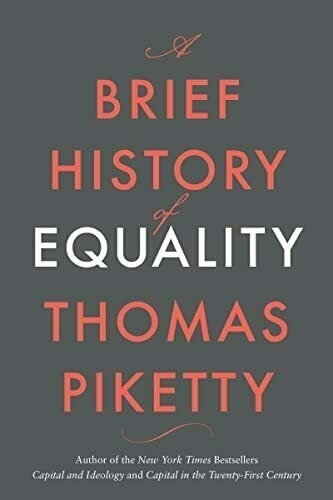
With A Brief History of Equality Thomas Piketty’s new book brings his views on economics to the public as clearly and concisely as he can. At only 277 pages versus his last book Capitol and Ideology which was 1100 pages he really has made every effort to make this as readable as possible.
It is meant to be read not just prop up a coffee table and throughout I found it easy to read and engaging. So if you thought about taking the plunge with Piketty before well this is probably the one too start with for most of us. Piketty begins with clear intentions.
This book offers a comparative history of inequalities among social classes in human societies. Or rather, it offers a history of equality, because, as we shall see, there has been a long-term movement over the course of history toward more social, economic, and political equality.
He follows through on this for the most part, with a clearly stated ambition and detailed research which he uses well enough to illustrate his points without letting the main text to get bogged down in the detail.
Along the way he deals with the key reason we are where we are today by looking back at the last 300 years of economic history.
We might classify these under a few different headings or keywords of which I have brought out a few which I think cover much of what he talks about;
- Slavery and Colonisation.
- Property Rights.
- Education.
- The Liberal economic model.
- Redistribution.
So he clearly sets out the history of inequality, how and why it arose, and slow diminishing over the last 300 years. But now we are at a possible inflection point and inequality has lately been rising again.
He proposes a set of economic tools to get us back on track as it were. To address the problems that are glaringly obvious to all at the moment. It’s a welcome relief from the cheap nationalism in much Western dialogue about economics.
In this book, I have defended the possibility of a democratic and federal socialism, decentralized and participatory, ecological and multicultural, based on the extension of the welfare state and progressive taxation, power-sharing in business enterprises, postcolonial reparations, the battle against discrimination, educational equality, the carbon card, the gradual decommodification of the economy, guaranteed employment and an inheritance for all, the drastic reduction of monetary inequalities, and finally, an electoral and media system that cannot be controlled by money
I hope it is read and debated fairly. I recommend it to anyone looking to make sense of the economic forces which all buffer us but we often are unaware of and in that sense whether you ultimately agree with Piketty or not it is well worth a read.
📚★★★★